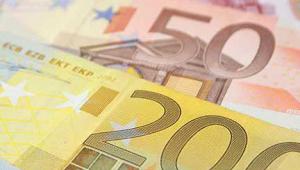By Nick Mann | 24 May 2012
An informal summit of European Union leaders in Brussels ended last night with a renewed commitment to keep Greece in the eurozone but no new decisions on how to address the crisis facing the single currency.
European Council president Herman Van Rompuy said the meeting had ‘prepared the ground’ for common decisions to be taken at a full meeting of the European Council scheduled for June 28 and 29. ‘Tonight’s meeting was about putting pressure, focusing minds and clearing the air,’ he said.
Van Rompuy said last night’s discussions had been ‘focused and frank’ and addressed the need for both financial stability and economic growth.
He said it was a ‘false debate’ to suggest there was a choice between deficit reduction and growth. ‘They are two sides of the same coin. Without sound public finances there can be no sustainable growth; but without sustainable growth, the measures to bring our debt levels under control will be done in vain.’
In particular, Van Rompuy said there was a need to use EU policies to support growth, such as by making progress on the European Single Market. Measures were also needed to create jobs and support labour demand and to make investments in the economy.
As part of this, the European Investment Bank had been asked to fund more infrastructure projects. He also welcomed agreement between the Council and European Parliament on the summer launch of a pilot for project bonds, where EU money will be used to help leverage private investment in capital projects.
The meeting ended, however, with reports of disagreements between German chancellor Angela Merkel and French president François Hollande over whether eurobonds have a role to play in Europe’s economic recovery.
While Hollande supports the issue of common bonds for the eurozone to tackle the eurozone crisis, Merkel is understood to have said the bonds would violate EU treaties and do little to boost growth.
On Greece, all 17 eurozone leaders did reach common ground. They stressed their support for the country to remain in the single currency and urged any new government formed after the planned June 17 elections to keep on track with its austerity measures.
In a statement they said: ‘We want Greece to remain in the euro area while respecting its commitments.
‘The eurozone has shown considerable solidarity, having already disbursed, together with the International Monetary Fund, nearly €150bn in support of Greece since 2010. We will ensure that European structural funds and instruments are mobilised to bring Greece on a path towards growth and job creation.
‘Continuing the vital reforms to restore debt sustainability, foster private investment and reinforce its institutions is the best guarantee for a more prosperous future in the euro area. We expect that after the elections, the new Greek government will make that choice.’












